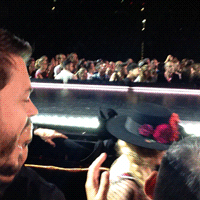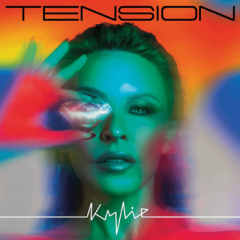Leaderboard
Popular Content
Showing content with the highest reputation on 04/12/2018 in all areas
-
The only experimental part on Bedtime Stories was towards the end of the album being Sanctuary and Bedtime Story. The other songs were RnB influenced and representitive of the early mid 90s. The reason she went in that direction was to soften her image due to SEX and apparently going to far. Being a 90's baby and living in this decade is to me laughable now looking back. Don't get me wrong I love Bedtime Stories. The two songs I just mentioned and I'd Rather Be Your Lover, Take A Bow, Human Nature, Secret and Survival are my choice cuts from the album. I hasten to add that I was quite shocked that Your Honestly was also omitted from the album as that song is amazing. However to call it experimental is a tad to far. I guess it was experimental in terms of going to the oppostie field of what Madonna was known for but the album as a whole not so. Erotica was much more of an experimental album in terms of concept, lyrics and image that unfortunately got lost blinded at the time by SEX. A review I read somewhere said something along the lines of "Madonna at her most important" and I truly agree with that as the album was released during a very volatile period with HIV & AIDS not being talked about and gay men getting the boot unfairly for it.1 point
-
1 point
-
1 point
-
1 point
-

Madonna on Instagram / Facebook / Twitter + other Social Media
skyfitswim reacted to mrsciccone for a topic
Real life persons don‘t need grillz, easter bunny ears and all this fakeness... whatever your avatar shows we do not like the same side of one coin!!!1 point -
1 point
-
1 point
-

Madonna on Instagram / Facebook / Twitter + other Social Media
MadonnaLove reacted to groovyguy for a topic
1 point -

Madonna’s 10 Greatest Albums Ranked & Revisited By Albumism
JupiterArgus reacted to groovyguy for a topic
#2 | Ray of Light Maverick/Warner Bros. (1998) Revisited by Quentin Harrison Transcendence. An apt summarization of the significance of Ray of Light(1998) —originally presented to the public on February 22, 1998—upon Madonna's life and career. It's narrative purpose? To further humanize La Ciccone, revealing her to be a spiritualist (“Drowned World/Substitute For Love,” “Nothing Really Matters”), a new mother (“Little Star”) and a citizen of the world (“Swim,” “Sky Fits Heaven”). Musically, this was communicated through a fluid blend of electronica, alternative pop and world music that brought Madonna into contact with new (William Orbit, Maurius de Vries, Rick Nowels) and old (Patrick Leonard) artistic partners. At the center of it all was Madonna herself, more confident as a vocalist and songwriter than ever before. The record was a victory in every quarter—creatively, commercially, critically. The album and its title song awarded Madonna four Grammy Award wins, three of them as her first in musical categories (“Best Pop Album,” “Best Recording Package,” “Best Dance Recording,” “Best Short Form Music Video”). The LP also marked her return to the stage as one of her generation's defining live acts with the celebrated “Drowned World Tour.” Ray of Lightmaintains itself as the momentous symbol of her most adventurous second chapter in her musical métier.1 point -

Madonna’s 10 Greatest Albums Ranked & Revisited By Albumism
JupiterArgus reacted to groovyguy for a topic
#5 | Bedtime Stories Maverick/Sire/Warner Bros. (1994) Revisited by Steven E. Flemming, Jr. It might sound funny now, but back when we felt Madonna’s heartbeat for the very first time, she was hailed as the newest blue-eyed soul chick on the block. As many of her first hits rose to the upper reaches of Billboard’s R&B chart— “Holiday,” “Like a Virgin,” and “Into the Groove,” for instance—the dance-pop singer often drew comparisons to late singer-songwriter Teena Marie, the undisputed Ivory Queen of Soul. The parallels were premature at best and plain misguided at worst, mainly because there was very little about Madonna that was ever purely R&B. Production credits from Mtume’s Reggie Lucas and Chic’s Nile Rodgers aside, the best of Madonna’s early work was bright, R&B-flavored pop. In the case of Bedtime Stories, however, the R&B tag made a bit more sense. While the sublime rhythms of Eroticachanneled R&B energies in spots, Bedtime Stories is more overtly soulful than anything in her deep catalog. From the open spaces of "Secret" to the S&M meets hip-hop flavor—cornrows and all—of "Human Nature" (and the subsequent remixes that got significant black radio airplay), the Madonna found here feels a little less abrasive and a lot more honest, a needed contrast to the volatile years of the Sex era. Anyone who experienced the original broadcast of her performance of "Take A Bow" alongside singer-producer Babyface at the American Music Awards in 1995 was awed by its beauty, and will likely never forget it. And when you factor in other moments like “I’d Rather Be Your Lover” (featuring Meshell Ndegeocello) “Forbidden Love,” “Survival,” and, for serious fans of the period, the outtake “Your Honesty” (featured on Remixed & Revisited years later), Bedtime Stories is an interesting look at a time in mainstream pop when cross-pollination didn’t feel like appropriation. This was, and is, artistic admiration done right.1 point -

Madonna’s 10 Greatest Albums Ranked & Revisited By Albumism
JupiterArgus reacted to groovyguy for a topic
#7 | Erotica Maverick/Sire/Warner Bros. (1992) Revisited by Justin Chadwick Far less shocking—or stimulating—to the senses by today’s more desensitized standards, to say that Erotica was controversial upon its release 25 years ago is an understatement. But the flip side of the coin is that it was an undeniably revolutionary record. The unabashed and forthright way that Madonna redefines sexual identity and power dynamics, deconstructs sexual taboos, and evangelizes sexual freedom was indeed groundbreaking for its time, serving as a much-needed wake-up call for the sexually repressed and repressive, particularly here in the notoriously puritanical United States of America. Across Erotica’s fourteen compositions (thirteen on the LP’s edited version), Madonna successfully subverts the antiquated, straight-male dominated dialogue about sex by taking full command of the conversation and delivering a clinic in sexual liberation. With confidence and charisma in droves, she flips traditional gender-driven roles and ethics on their head, blurs the socially-constructed lines between the multitude of sexual identities that exist, and gives mainstream voice and validation to those traditionally marginalized toward the fringes of social acceptance. And while Erotica is a concept album of the most captivating caliber, whether you share or empathize with Madonna’s perspective or not, its thematic thrust all too often overshadows its importance within the context of its creator’s musical progression. Though her self-titled 1983 debut Madonna certainly incorporated club-driven inspirations, Erotica is the first of Madonna’s long players that found her wholeheartedly embracing the hedonism and influences derived from the dancefloor, an exciting evolution shepherded (pun intended) by co-producer Shep Pettibone that would be further cemented in increasingly glorious ways on subsequent efforts such as Bedtime Stories (1994), Ray of Light (1998) and Confessions on a Dance Floor (2005). Just as refreshing and rewarding musically as it was for its brave social and cultural conscience as best evidenced by tracks like the euphoric “Deeper and Deeper” and poignant “In This Life,” Erotica was, is, and will forever be a fearlessly fierce album that only Madonna could make. No one has ever come close to replicating it and no one ever will. In Vanity Fair’s October 1992 issue, Madonna proclaimed, “I’m out to open [people’s] minds and get them to see sexuality in another way. Their own and others.’” More than any other album in her prolific oeuvre, Erotica fulfilled her objective and struck a mighty blow to the plague of cultural and moral myopia, in America and beyond.1 point -

Madonna’s 10 Greatest Albums Ranked & Revisited By Albumism
JupiterArgus reacted to groovyguy for a topic
#9 | Music Maverick/Warner Bros. (2000) Revisited by Chris Lacy As the calendar switched from 1999 to 2000, Madonna found herself competing against the resurgence of bubblegum pop (Backstreet Boys, NSYNC, Britney Spears, and Ricky Martin, among others). Her reentry into this new music scene was difficult to predict, but if there’s one redeeming quality about the then-21-year veteran, it’s her ability to adapt and overcome. Music was a return to basics that “feels as effortless as the dance-pop of her Ciccone youth,” raved Spin Magazine. “Music” and “Impressive Instant” are sonically explosive songs that represent a new millennium techno-funk, elevating Madonna head and shoulders above her pretenders, even at this advanced stage in her career. While there’s certainly an unabashedly retro nature exuding from the sharp, edgy rhythm tracks, the rich soulfulness of “Don’t Tell Me,” “What It Feels Like for a Girl,” and “Gone” balance the tempo out, granting more room for her to experiment with rock, country, and folk. For an album that ranked No. 452 on Rolling Stone’s list of The 500 Greatest Albums of All Time, Music is hardly recognized as an exceptional pop record among casual music listeners. However, Madonna’s eighth studio offering is a veritable treasure trove of underrated material and loaded with seductive eclecticism, hypnotic textures, and thick grooves.1 point -
1 point
-
Newsletter




